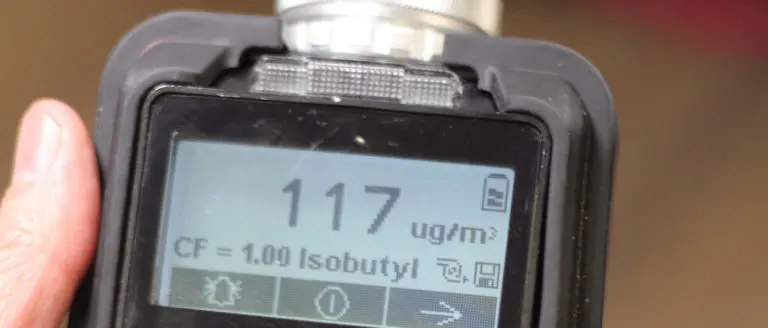Snack Food VOC Residue Testing
Snack food manufacturers are increasingly focused on ensuring that their products meet not only flavor and quality expectations but also stringent regulatory requirements regarding volatile organic compounds (VOCs). The presence of certain VOCs, such as benzene, toluene, ethylbenzene, and xylene (BTEX), can pose health risks if consumed in significant quantities. Therefore, testing for these compounds is crucial for maintaining product safety standards.
Our laboratory specializes in providing comprehensive VOC residue testing services specifically tailored to the snack food industry. This service ensures that our clients can meet regulatory requirements set by various jurisdictions and maintain their reputation as a leader in food safety and quality. Our expertise lies in accurately identifying and quantifying VOC residues, which helps manufacturers make informed decisions about ingredient sourcing and production processes.
The testing process involves several key steps: specimen preparation, sample analysis using advanced analytical techniques such as gas chromatography-mass spectrometry (GC-MS), and interpretation of results against established standards. By adhering strictly to international guidelines like ISO 16432 for the determination of BTEX in foodstuffs, we ensure precision and reliability in our findings.
Understanding the composition of VOCs present in snack foods allows manufacturers to take proactive measures to reduce harmful substances while enhancing product safety. This approach not only protects public health but also reinforces consumer trust in brands that prioritize stringent quality control practices.
In addition to meeting regulatory demands, testing for VOC residues offers significant operational benefits for businesses operating within the snack food sector. It enables companies to stay ahead of emerging trends and comply with changing regulations globally. Moreover, accurate identification of potential contaminants helps suppliers choose safer ingredients, thereby reducing risks associated with non-compliance penalties.
- Enhanced Product Safety: Ensures compliance with local and international health and safety regulations.
- Informed Decision Making: Provides valuable insights into ingredient selection and process improvements.
- Reputation Management: Maintains brand integrity by demonstrating commitment to high standards of quality control.
- Predictive Analysis: Allows early detection of emerging issues before they impact market performance.
The demand for safer food products continues to grow, driven by increasing consumer awareness about the health implications of consuming certain VOCs. As a result, many countries are implementing stricter legislation regarding permissible levels of these compounds in various types of food products. Our laboratory plays a pivotal role in helping our clients navigate this evolving landscape by offering reliable and accurate VOC residue testing services.
By leveraging state-of-the-art equipment and experienced professionals, we deliver precise results that contribute to the overall success of our customers' businesses. Whether you're looking to ensure compliance with current regulations or anticipate future changes, our team is here to support your needs effectively.
Why It Matters
The importance of VOC residue testing in snack food cannot be overstated given the potential health risks associated with certain compounds. Regulatory bodies worldwide have established limits on permissible levels of BTEX and other VOCs due to their carcinogenic properties or toxicity when ingested over long periods.
For instance, exposure to high concentrations of benzene has been linked to leukemia and other blood disorders. Similarly, prolonged consumption of foods containing elevated amounts of toluene may lead to neurological damage. Ethylbenzene and xylene are known irritants that can cause respiratory problems if inhaled or ingested in large quantities.
Given these concerns, governments have introduced stringent regulations governing the maximum allowable limits for BTEX and other VOCs in food products. Failure to comply with these rules not only exposes companies to legal action but also damages their reputation among consumers who increasingly value transparency and safety in the products they purchase.
In addition to regulatory compliance, conducting regular VOC residue tests allows manufacturers to monitor changes in raw material quality over time. This helps identify any shifts towards more hazardous compounds or contaminants that could arise during processing stages. Early detection enables corrective actions to be taken promptly, minimizing potential impacts on both product safety and brand image.
Moreover, maintaining rigorous testing protocols demonstrates a company's dedication to upholding the highest standards of quality control. Such efforts resonate positively with stakeholders ranging from regulatory authorities to consumers seeking assurance that their favorite snack foods are safe for consumption.
International Acceptance and Recognition
VOC residue testing is a globally recognized practice aimed at ensuring food safety across borders. Many countries adhere to international standards such as ISO 16432, which sets out procedures for determining BTEX in various types of foods. Compliance with these guidelines not only enhances credibility but also facilitates trade between nations.
Our laboratory adheres strictly to these norms when conducting VOC residue tests on snack foods. This commitment ensures that our findings are universally accepted and trusted by regulatory bodies around the world. By aligning ourselves with internationally recognized practices, we help our clients achieve seamless compliance across diverse markets.
The recognition gained from international standards also enhances a company's reputation among buyers who prioritize ethical sourcing and sustainable production methods. In an era where consumers demand transparency about the origins of their food products, having third-party certification adds significant value to brands seeking to build long-term relationships with customers.
Ultimately, embracing global best practices in VOC residue testing positions manufacturers as leaders in food safety and quality assurance. It demonstrates a proactive stance towards addressing potential risks associated with certain compounds while fostering trust between producers and consumers alike.





